|
Back to overview: |
|
Workshops for traditional crafts |
|
|
In order to fight against high unemployment of disadvantaged Newar-women Lalita and Rajman Maharjan have founded in summer 2012 a citizen cooperative for funding the costs for the establishing of about 35 jobs for traditional Newar crafts. |
|
Bakers |
|
|||
|
Tailors |
|
|||
|
Spicemaker |
|
|||
|
Weaver |
|
|||
|
Mat maker (suku) |
|
|||
|
Knitter |
|
|
They rented part of a building for the installation of workshops, a small office, storage rooms as well as for a coffee shop and a shop for selling the products manufactured in the workshops. In the back yard of the house they erected a separate building for various workshops. |
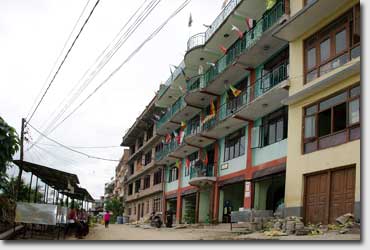 |
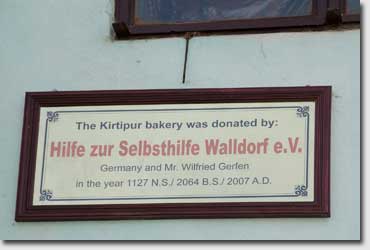 |
|
The rented building with
bakery-café and shop |
The commemorative plaque of
the old bakery |
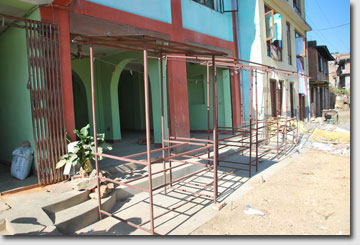 |
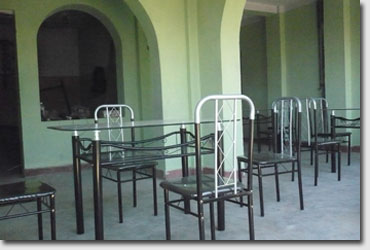 |
|
The new café with shop |
View of the bakery-café |
|
The new workshop building in the back yard |
The selection of (exclusively) Newar women who may earn from 5.0000 up to 8.000 NPR per month follows very strict rules. The project is to bring relief to the most deprived families only!! Yet the most convincing aspect of the whole project is the rule that each and every of the selected women has to agree by contract to spend 4 hour a month for cleaning streets and lanes of Kirtipur without further payment. Thus the provision of new jobs is directly knotted with the ideas of active environmental protection. Certainly this will be of advantage for the development of tourism at Kirtipur on the long run. Click HERE so see pictures of one of the weekly actions of the employees of our workshops to clean the streets and lanes of Kirtipur. |
|
About 220 families have invested into the project with shares between 10 and 200 Euros. From their good experiences of the cooperative to finance the "Newar Lahana Restaurant" they could be sure that their money was to be a good and profitable investment.
At the end the ambitious project
was threatened to fail even before it had started as the financial
contributions by the community members stayed behind the expectations.
Only 40% of the necessary budget could be covered and thus
My spontaneous enthusiasm about this unusual
idea of efficient help for self-help was immediately shared by the
board members of
It has been agreed upon that our donation will be handled as a normal share to the cooperative. Any profits which might be generated in the future will be re-invested into future help activities in Kirtipur. |
|
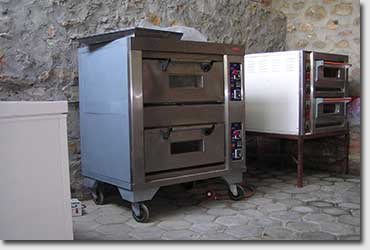 |
8 women are now working in the new bakery. The production has been improved and remarkably enhanced. The supply of goods is now covering from simple toast, rolls, donuts, muffins and hart pastries to nicely decorated cream tarts for all kind of celebrations. Due to the frequent power failure (load shedding) in Kathmandu of daily 10-14 hours (depending on season) a second gas-operated bakery-stove was purchased in order to guarantee uninterrupted production. |
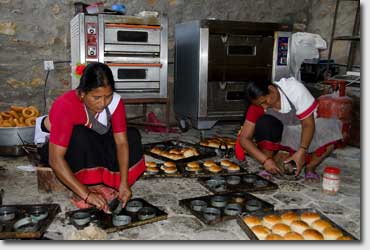 |
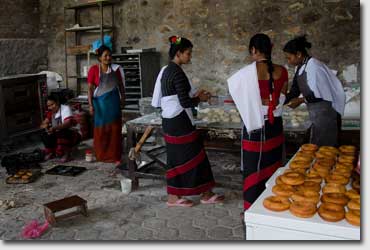 |
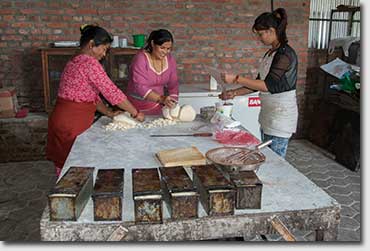 |
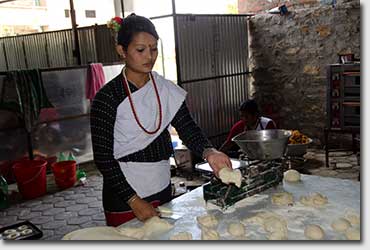 |
 |
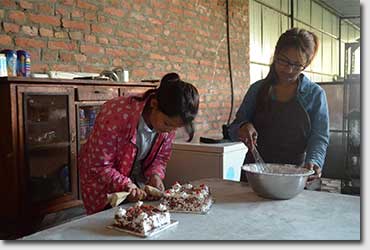 |
|
The offerings of the bakery are manifold. Due to the intensely competitive industrial - thus cheap - production of bakery items by the big bakeries in Kathmandu the bakers are exposed to a very hard economic pressure. Since 2014 they are eagerly trying to get delivery contracts with the schools participating in PEP for any type of bakery items for for the tiffin breaks. |
|
|
In the tailor's workshop the women started with the producing of typical clothing of the Newar. Cut, colours and design of the fabrics are following very strict traditional rules.
The cloths are sold in the shop but also
distributed in the Kirtipur market. Not to forget also custom made
clothing. Some of the employed women are responsible for the selling and
marketing of the products. |
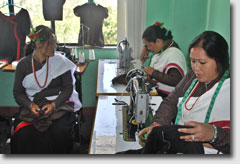 |
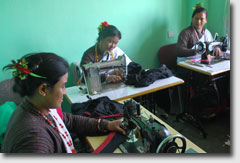 |
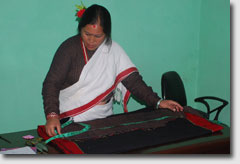 |
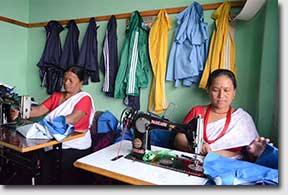 |
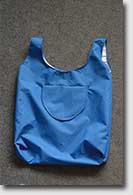 |
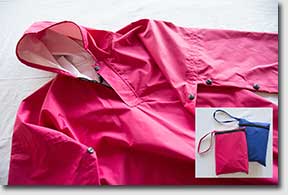 |
|
Textile shopping bags have developed to be one other focus of the production. Lalita und Rajman Maharjan are highly committed convincing the people of Kirtipur to use those bags instead of plastic bags for the benefit of the environment. In 2013 the tailors have produced hooded shirts for all PEP students in a rather high professional quality. These shirts were used as a present of the PEP-patron on the occasion of the anniversary celebrations. Following in 2015 colourful raincoats were produced for the same purpose (see photo). |
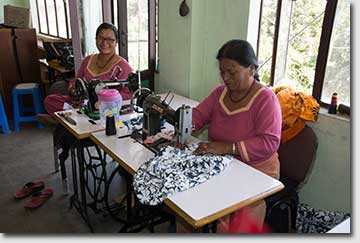 |
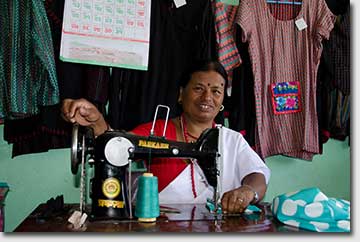 |
|
Besides traditional Newar clothing, a speciality of our tailors, you can also find more modern clothing in the production program. |
|
|
The spices are manufactured with traditional methods by hand and spice mortar in the main building but also partly in the 'Newar Lahana Museum'. The chillies as well as the manifold ingredients of the various popular curries (Curcuma, cardamom, cumin, peppers etc.) are dried on the roof of the main building and of the new worshops-hall.. |
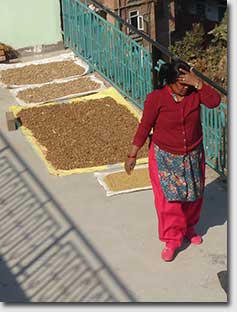 |
Traditional manufacturing and drying
Even shortly after the start of the production a strong demand for 'our' spices developed at the households of Kirtipur and also in the smaller and bigger shops at the bazaar. |
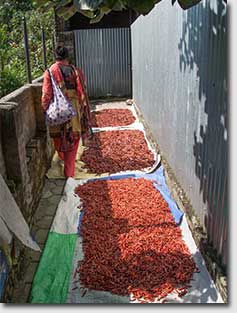 |
|
|
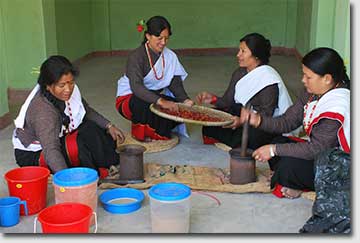 |
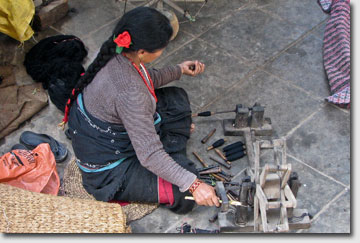 |
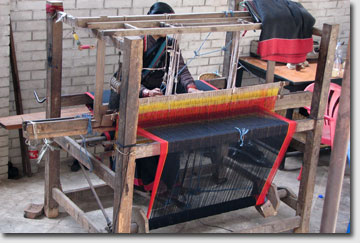 |
|
Production of cloth in traditional Newar Design. |
|
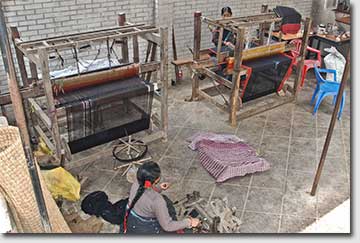 |
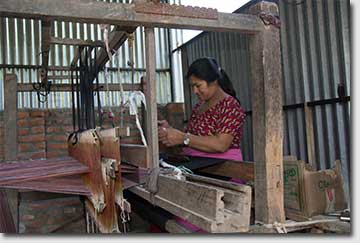 |
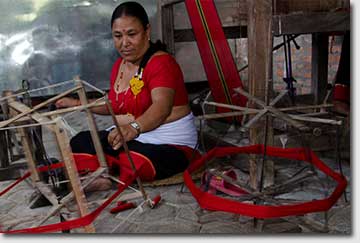 |
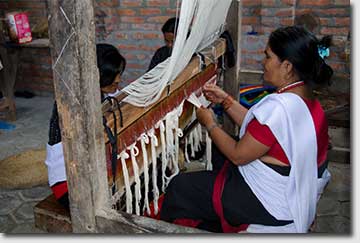 |
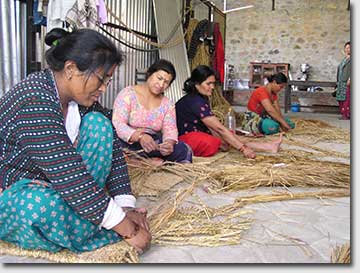 |
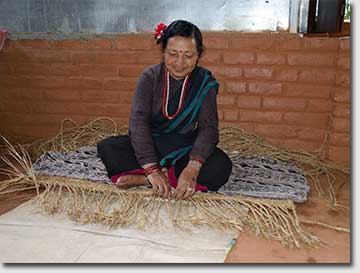 |
|
Producing the traditional 'suku' (mats made from rice straw) in our workshops and in the 'Newar Lahana Museum' |
|
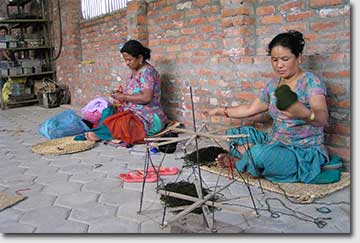 |
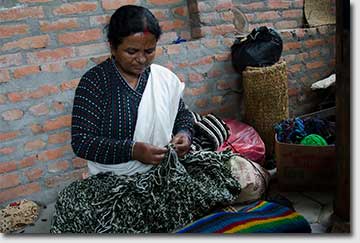 |
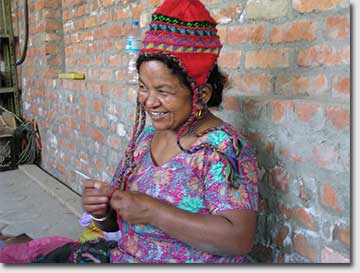 |
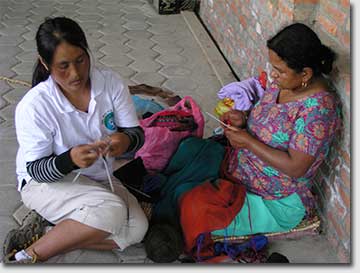 |
|
In the workshop hall the knitters have taken place on sukus to produce warm winter clothing for the cold months of the year. |
|
One should not the combination of the workshop-project with the commitment for environmental protection. All women employed have committed themselves helping to clean the streets of Kirtipur and of the villages around for 4 x 2 hours a month. Normally on Saturdays (the weekly free holiday in Nepal) you can see them with their brushes. Cheerful they are dragging through the streets indicating a good model for the population for keeping the environment clean. |
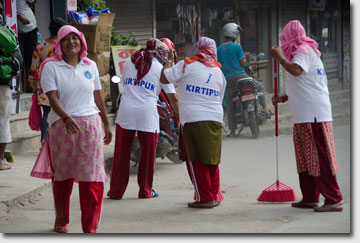 |
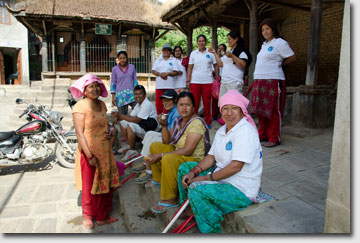 |
| Each Saturday the women are helping to keeping the environment clean | Making a deserved break |
|
|
|
|
To the top |
|
Concept 'Help for Women' |
|
|